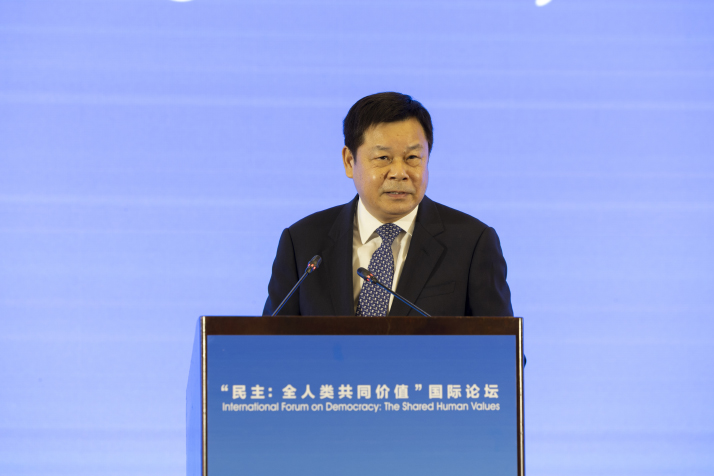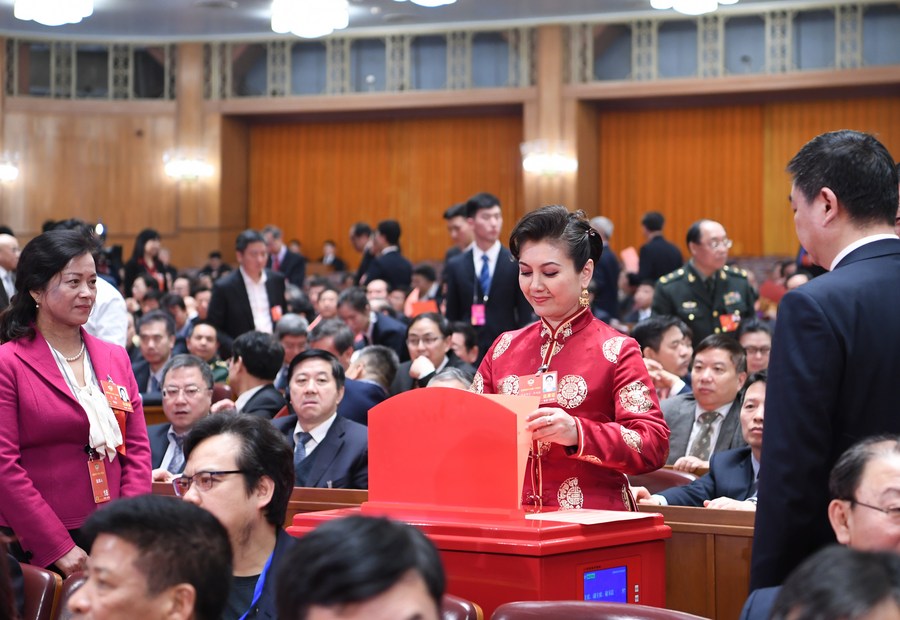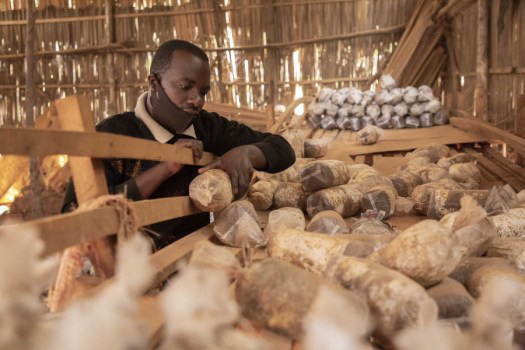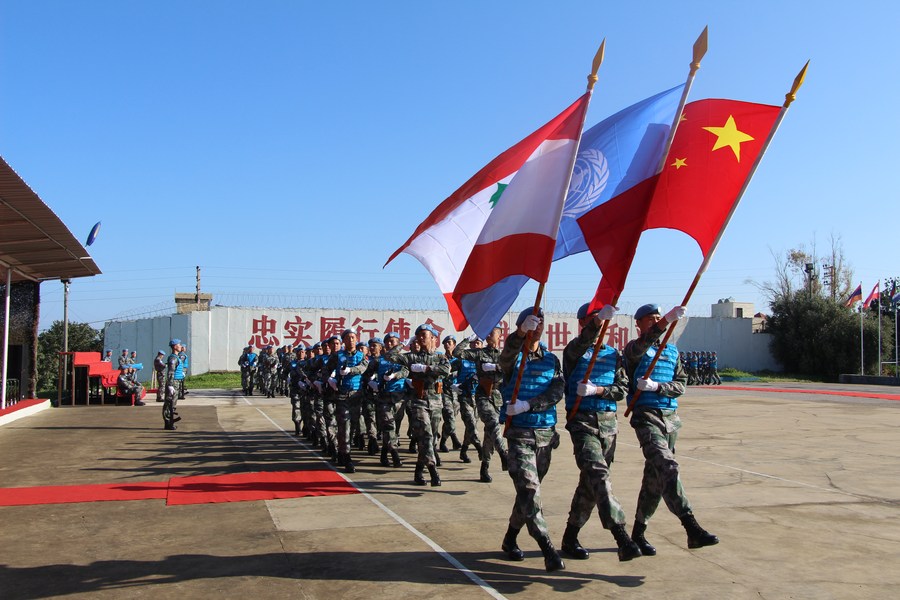Shared Values of Humanity

China supports humanity’s shared values of peace, development, fairness, justice, democracy and freedom.
Global governance should be open, inclusive and fair, and forcing the rules made by a few upon the many will not work, Du Zhanyuan, President of China International Communications Group, said at a recent forum in Beijing. The event saw representatives from more than 120 countries and regions as well as 20 international organizations share their views on democracy both online and offline. This is an edited excerpt of Du’s speech:

In the West, many “role models of democracy” have seen their institutions degrade over the recent years. At the so-called “summit for democracy” in December, U.S. President Joe Biden, the host, admitted that more than half of all “democracies” have experienced a decline in at least one aspect of their democracy over the last 10 years, including the United States.
Although a shared human value and goal, democracy has never been easy to achieve. There are no ready models to copy, and countries must explore their own paths by drawing on the shared wisdom of Eastern and Western civilizations. Democracy is progressive in nature and comes in all forms.
Over the past 100 years, China has achieved unprecedented success in advancing democracy. This success is explained in its efforts to pursue democracy in the context of domestic cultural traditions and national conditions. Two millennia ago, Confucius, Mencius and other Chinese philosophers believed that the people were the basis of any state, emphasizing that stability must be built on firm foundations. This was fundamentally different from the system of city-states in ancient
Greece. China’s 5,000-year-old civilization cradled its unique culture, which laid down the groundwork for socialism with Chinese characteristics and its many successes.

Shortly before the founding of the People’s Republic of China (PRC) in 1949, the Chinese People’s Political Consultative Conference (CPPCC) adopted the Common Program of the CPPCC as the provisional constitution of the new republic, stating that the PRC is a state of new democracy, or the people’s democracy. Since the 18th Communist Party of China (CPC) National Congress in 2012, democracy has been incorporated in the Party and state constitutions as a component of the core socialist values. As its understanding of democracy grows, in the spirit of people-centered governance, the CPC has created whole-process people’s democracy—a distinctively Chinese approach with global values.
China pursues and promotes authentic democracy. It practices people’s democracy within its borders and contributes to the development of more democratic international relations.
First, a democratic global governance system should be open and inclusive. Democracy is not the prerogative of a few nations, but the common right of the peoples of all nations. In today’s world, globalization has resulted in economic interdependence and the coexistence of different political ideals and systems. According to Democratic Practices and Governance Effectiveness in China, a global survey report recently released by the Academy of Contemporary China and World Studies, “peace, development, fairness, justice, democracy and freedom”—those very values advocated by China—achieved an average approval rating of 96.7 percent from the peoples of 23 countries. This indicates that its vision has garnered global support.
Earlier this year, China announced the eradication of absolute poverty in the country, making a historic contribution to eliminating poverty worldwide. While learning from the international community in addressing the problem, it has also shared its experience without reserve. China’s juncao technology, an agricultural technology to cultivate edible and medicinal mushrooms, has been introduced to more than 100 countries and created hundreds of thousands of jobs.

In stark contrast, some countries are aggressively exporting their models of “democracy,” as they want to be hegemons in a unilateral world. An annual report on the global state of democracy in 2021 adds the U.S. to the list of “backsliding” democracies, and shows that its allies are experiencing a democratic decline twice as fast as its non-allies. This further demonstrates that behind closed doors, democracy declines—it can only be nourished through open exchange.
Second, a democratic global governance system should aim for common development. A sound global governance system should contribute to the wellbeing of humanity and advance human civilization. Today’s world still suffers from unbalanced and inadequate development, awaiting solutions to challenges such as North-South disparity, social injustice, hunger and poverty, and climate change.
According to a number of U.S. research institutes, America has lost 200,000 jobs as a result of its trade war on China; its global trade deficit expanded from $799 billion to $916 billion last year, posing a grave threat to the orderly development of the world economy.
As opposed to the aforesaid, China upholds the principle of extensive consultation, joint efforts and shared benefits in promoting cooperation under the framework of the Belt and Road Initiative, which has become a popular international public good and the world’s largest cooperation platform. As of November, China had signed 200 Belt and Road cooperation agreements with 140 countries and 32 international organizations, and established more than 90 bilateral cooperation mechanisms.
Third, a democratic global governance system should ensure security for everyone. Peace and security are the common wish of all. Seventy years have passed since World War II came to an end, but the world remains haunted by disputes and chaos. One self-proclaimed “beacon of free-world democracy” has become the greatest source of threat to world peace. Since the September 11 terrorist attacks in 2001, the U.S. has launched wars and military operations that have affected 40 percent of the countries on this planet; its wars in Iraq, Afghanistan and elsewhere have taken more than 800,000 lives in the name of combating terrorism, and left more than 38 million people homeless. The same country at the “democracy summit” demanded an end to the abuse of surveillance technologies, but seemed to have forgotten that the PRISM program under which the U.S. National Security Agency collects Internet communications from various U.S. Internet companies is by far the world’s biggest surveillance scandal.
The Chinese people cherish peace and have worked tirelessly to safeguard world peace. China actively participates in building regional and international security mechanisms. It has dispatched the greatest number of peacekeepers among the permanent members of the UN Security Council with over 50,000 Chinese peacekeepers having taken part in 25 UN peacekeeping missions, their contributions widely recognized by the international community as an important force and a key factor in maintaining regional security.

Fourth, a democratic global governance system should be fair and just. All countries should work together under the spirit of multilateralism to manage international affairs. While claiming to uphold the “rules-based international order,” some countries are in fact forcing the rules and will of a few upon the many, instigating opposition and confrontation. This will never work. Their cherry-picking that works to their benefit is fake multilateralism that runs counter to the trend of the times and the global view. Only those who champion true justice will have the people’s support. In the international community, many in the know have suggested that the “democracy summit” was used to create groupings and divisive camps—undermining democracy in global governance under the pretext of pursuing democracy.
China supports humanity’s shared values of peace, development, fairness, justice, democracy and freedom. It safeguards the international system with the United Nations at the core and an international order based on international law, and has always been committed to promoting democracy in international relations. Over the past 50 years, since restoring its lawful seat in the UN, China has joined almost all universal intergovernmental organizations, signed more than 600 international conventions, and faithfully fulfilled its international obligations. It is a true practitioner of multilateralism.
There is always scope for improving any democratic system. In this age of unprecedented change, the world faces increasing instability and uncertainty on a turbulent journey to democracy, equality, fairness, and justice. Without the concerted effort from all, there is a risk of regression in democracy in global governance, and the true value of democracy will be corroded by populism and hegemonism. Governments and visionaries should champion the spirit of democracy and work together to add new models to the political spectrum and form a global community of shared future.
 Facebook
Facebook
 Twitter
Twitter
 Linkedin
Linkedin
 Google +
Google +










